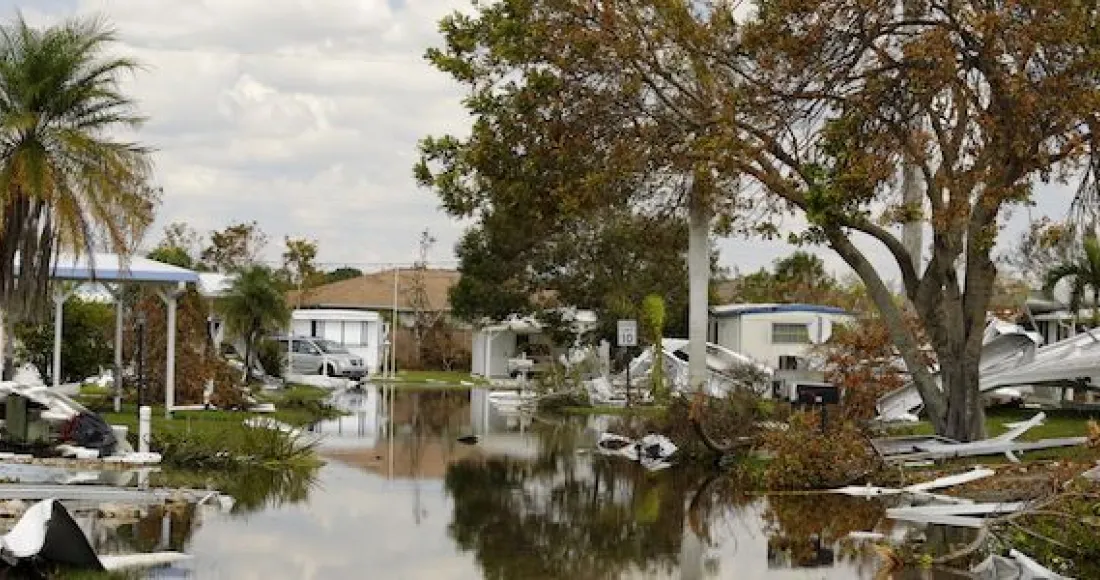
In the aftermath of hurricanes like Harvey, Irma, and Maria, government relief dollars will rightfully flow to communities hit by the devastation of those storms. With those relief dollars comes a sense of hope and renewal, but what also follows that funding stream are fraudsters looking to get their hands on some government money. The potential for False Claims Act violations abounds.
Relief bills have yet to be signed for Irma, which struck portions of Florida, the U.S. Virgin Islands and Puerto Rico, and Maria, which also struck Puerto Rico with devastating force. However, earlier this month, President Donald Trump signed into law a $15 billion recovery plan for areas hit by Hurricane Harvey, including Texas and Louisiana.
With those federal funds, contractors will be able to help rebuild communities, such as Houston and surrounding cities, which sustained billions of dollars in damage stemming from the Category 5 Hurricane Harvey. But for all the upstanding businesses looking to win and execute valuable government contracts, there will likely also be disreputable companies merely looking to use fraud to dip into the federal funding stream.
Government Contractor Fraud: Hurricane Katrina and the Fleecing of FEMA
To get an idea of what kind of fraud issues will arise in the aftermath of the recent onslaught of hurricanes, we only need to look to Hurricane Katrina, one of the deadliest such storms in American history. The August 2005 storm left a path of destruction worth $108 billion, and destroyed portions of New Orleans and coastal neighbors, in addition to gulfside areas in Mississippi, Alabama, and Florida. The need for emergency aid and infrastructure reconstruction was immense.
Devastation of that scope required the coordination of scores of parties, and a headquarters for the operation. The U.S. Department of Homeland Security paid $5.3 million to a company named Lighthouse Disaster Relief to build and operate a basecamp for first-responder personnel, according to a government report. The facility was supposed to house and feed emergency personnel going into New Orleans to help with rescue and recovery efforts.
That’s not what actually happened, though. Lighthouse and its principals were accused of failing to build and staff a sufficient basecamp to house the number of personnel articulated in the contract. They were then accused of lying to Federal Emergency Management Agency employees in order to be paid prematurely.
After a False Claims Act lawsuit was filed, Lighthouse agreed to pay $4 million to settle the lawsuit — on top of a previously garnished $1.3 million.
Insurance Fraud: State Farm and Katrina
Insurance company State Farm Fire and Casualty Co. also got into trouble for defrauding the government during Katrina. Two claims adjusters filed a False Claims Act whistleblower lawsuit, alleging that the insurance company instructed its claims adjusters to misclassify wind damage as flood damage to shift liability to the federal government, which would lighten the load on the company’s balance sheet, according to a National Public Radio report.
A jury verdict found in favor of the whistleblowers, ordering State Farm to pay $750,000 in damages — 30 percent of which went to the two whistleblowers. Although the insurer challenged the trial outcome, in December 2016 the U.S. Supreme Court upheld the verdict. State Farm faced other similar claims.
How Can Anyone Stop the Fraud and Exploitation?
It remains to be seen to what extent contractors will try to use the recent onslaught of hurricanes as a way to make a quick buck on the backs of taxpayers, all the while exploiting people whose lives have just been upended. Could there be more instances of what happened during Katrina, such as insurance fraud or shoddily completed projects? Could there be contractors doing work without proper certification? Nevertheless, one thing is certain: Where there is fraud, there will be a whistleblower ready to help the government hold the crooked contractors accountable.
Everyday, whistleblowers play an important role in uncovering fraud in government contracts. When it comes to massive hurricane relief efforts, their bravery is important.
If you work for a government contractor that is fraudulently acquiring relief funds, or are aware of a contractor engaging in such acts, you are encouraged to speak up. Federal law protects you from retaliation for blowing the whistle, and you have the potential to recover a substantial financial reward.
Our attorneys can help you investigate your claims, gather more evidence of fraud, and put you in contact with the government. Even if the government chooses not to pursue your case, retaining an attorney means having a confidante and the opportunity to continue seeking justice on your own. Contact us today for assistance.

